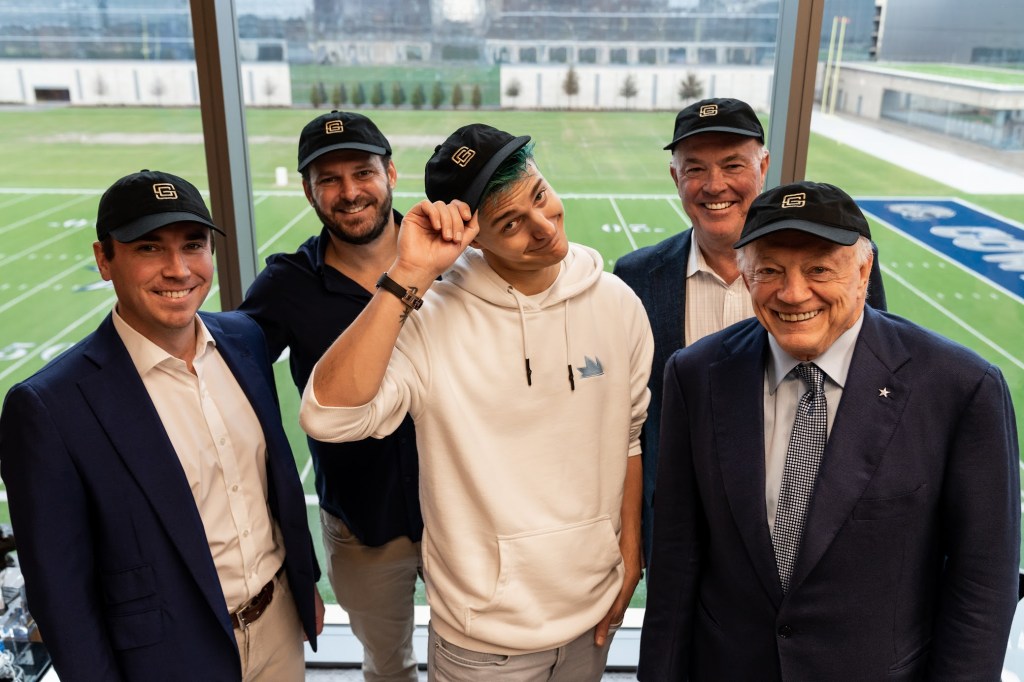Secure your place at the Digiday Media Buying Summit in Nashville, March 2-4
How GameSquare’s new chief innovation officer shows esports orgs’ changing approach to creator-executives

Prominent streamer and gaming influencer Tyler “Ninja” Blevins announced a new stage of his career on Wednesday, joining the esports company GameSquare as its first chief innovation officer. GameSquare’s decision to hire Blevins to a C-level position is evidence that esports companies still believe in the power of creator-executives — when their energies are channeled into the right role, at least.
Blevins’ hiring comes during a time in which investors are increasingly questioning the effectiveness of the esports industry’s creator–executives. Following controversies such as the September 2022 ouster of G2 Esports’ former-pro-gamer CEO Carlos “ocelote” Rodriguez, some industry observers have questioned whether it is financially beneficial for creators and pro gamers to be given powerful executive roles at esports companies valued in the hundreds of millions of dollars.

GameSquare is an esports holding company with a portfolio that includes prominent endemic brands such as the Texas-based esports team Complexity and the esports agency Code Red. As GameSquare’s chief innovation officer, Blevins will advise the company’s advertisers on how to best reach the gaming community, in addition to overseeing Ninja Labs, a research and development practice intended to develop new content formats and original intellectual properties for GameSquare. GameSquare is not the first esports company to bring a CIO on board; the role is also used by companies such as Evil Geniuses, Wisdom Gaming and BLAST.
“As CIO of GameSquare, I’ll be able to use what I’ve learned to make an impact at the company, and also within the industry,” Blevins said. “I’ve always prided myself on being first in a lot of the things I’ve done; through Ninja Labs, we’ll push the envelope for how brands can connect with audiences through gaming culture.”
Blevins is gaining equity in GameSquare as part of the deal, although GameSquare CEO Justin Kenna declined to share specific details about the structure of the agreement. Although Blevins will appear in GameSquare branded content as part of his new job, he isn’t exactly a member of GameSquare’s talent roster — he’s an executive whose role involves interfacing with other businesspeople more than regular fans.
“He’s speaking on behalf of the company, rather than streaming on behalf of the brand,” Kenna said.
Over the past year, other creator–owners at gaming organizations such as One True King have embroiled their companies in scandals related to their immature or even purportedly sexist behavior, putting potential sponsors on alert for the gaming industry’s brand safety issues. Although Blevins has faced online criticism in the past for controversial situations such as accidentally rapping a racial slur and refusing to stream with female gamers, his new, relatively behind-the-scenes executive role could help him keep a wide berth from potential controversies in the future.
Kenna is well aware of these potential risks, but confident that Blevins’ skills will still be beneficial to GameSquare, stressing that the streamer’s role at the company would be rooted in creativity, not in-depth business strategy. He pointed to past innovations such as Blevins’ background as the first major streamer to simultaneously stream across all platforms as evidence that his creator background could help focus GameSquare’s business strategy — and draw interest from potential advertisers.
“Dollars in the space have moved from these esports orgs to creators, and this sort of creator economy,” Kenna said. “We’ve seen it with Logan Paul, we’ve seen it with MrBeast, we’ve seen it with DrDisrespect. Talent want to create IP, which is beyond just slapping their logo on a hoodie. Ninja is the guy that can really help us be at the forefront of that.”
Regardless of the increased scrutiny faced by creator–executives, creators form the bedrock of the gaming and esports industry, and they will almost certainly continue to have more of a voice in the business strategies of companies in the space in the future. Prominent creators such as Pokimane and MoistCr1TiKaL have founded their own companies over the past few years, but taking on executive roles at pre-existing companies is certainly another way for creators to get more involved in the business side of the industry.
“I think it’s great, because we’re seeing non-traditional executives that didn’t come from that background of the relentless A to B corporate ladder now getting mentored by some of the best of the best,” said Josh “CARU” Glodoveza, the vp of talent at Fanjoy and a creator–executive in his own right. “These are people who’ve gone through those ranks and succeeded — and now they’re helping creators who obviously have pull and have power.”
More in Marketing

Future of Marketing Briefing: AI’s branding problem is why marketers keep it off the label
The reputational downside is clearer than the branding upside, which makes discretion the safer strategy.

While holdcos build ‘death stars of content,’ indie creative agencies take alternative routes
Indie agencies and the holding company sector were once bound together. The Super Bowl and WPP’s latest remodeling plans show they’re heading in different directions.

How Boll & Branch leverages AI for operational and creative tasks
Boll & Branch first and foremost uses AI to manage workflows across teams.








